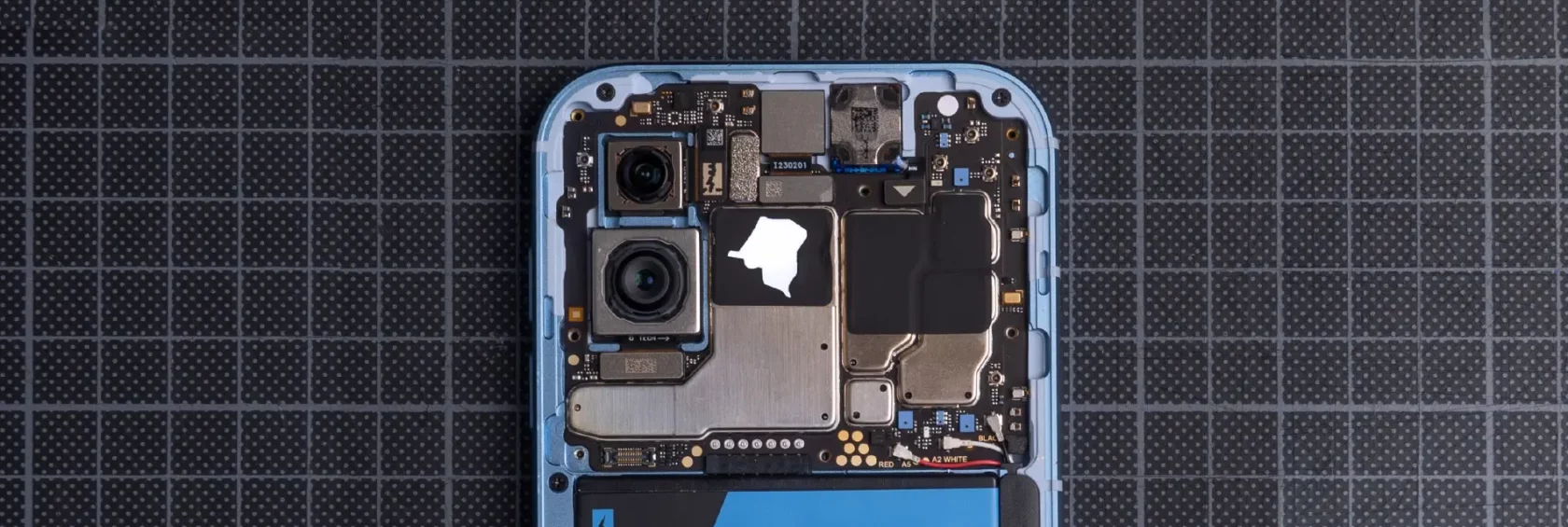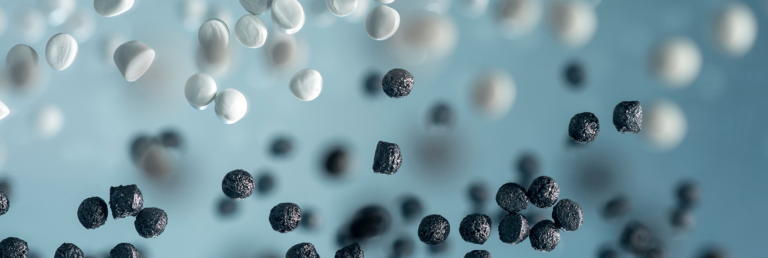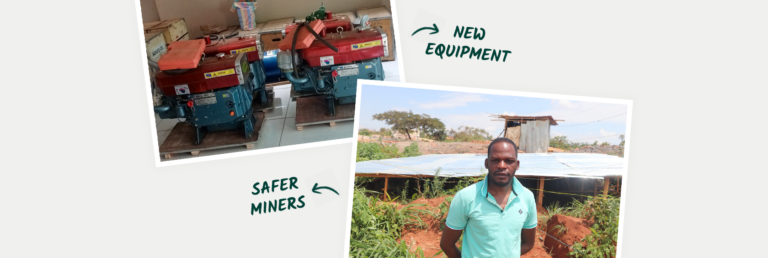Let’s talk about Fairphone’s work in the Congo.
There has been a lot of social media buzz over the last few weeks on a myriad of issues related to the Democratic Republic of Congo (DRC), from child labor issues to conflict minerals. Along the way, Fairphone has been getting tagged in a bunch of posts as well. We thought it would be a good time to share more on what we do on minerals sourcing and our work with miners and their communities in the DRC.
Fairphone actually started as an awareness campaign against conflict minerals in the electronics industry. From the mines to the factories, the electronics industry is filled with unfair practices. We believe that the best way to change the industry is to be part of it. By making fairer phones, we’re providing an example, showing the industry that it is possible to establish a market for fairer electronics, opening up the supply chain, creating a positive impact and building new relationships between people and their products.
In a perfect world, we would be truly circular – meeting our demand by using, reusing and recycling materials. However, at the moment, the demand outweighs the supply and a truly circular economy is still a distant goal. So, for some materials, we will need to depend on the mining sector for decades to come. From dangerous working conditions and pollution to instances of child labor, extracting the necessary materials can come with serious consequences. However, when managed well, mining can be a significant motor for local development and benefit workers and local communities.
That’s why we focus on demanding and supporting better practices in mining, as well as increasing the demand for and supply of recycled materials. What are these materials? Well, there are over 60 materials in a phone alone. Fairphone currently prioritizes 14 of these, because they have the largest social and environmental impact and need the biggest improvements. Among these 14, there are the minerals that are called “conflict minerals” and mined in the DRC (among other countries) like tin, tungsten, and gold. There’s also cobalt, without which we wouldn’t make the batteries that go in all our smart devices.
For each of these materials, we start out with researching and understanding the concrete situation on the ground. This means that we visit mine sites and speak with miners, their communities and also our partner organizations working on the ground. This helps us understand the context and the issues first hand, and ensures that we listen to those most affected and what they want to see changed. For example, tin, tantalum, tungsten and gold are mined mainly in the north-east of the DRC, where the context is completely different from the south, where cobalt is being mined.
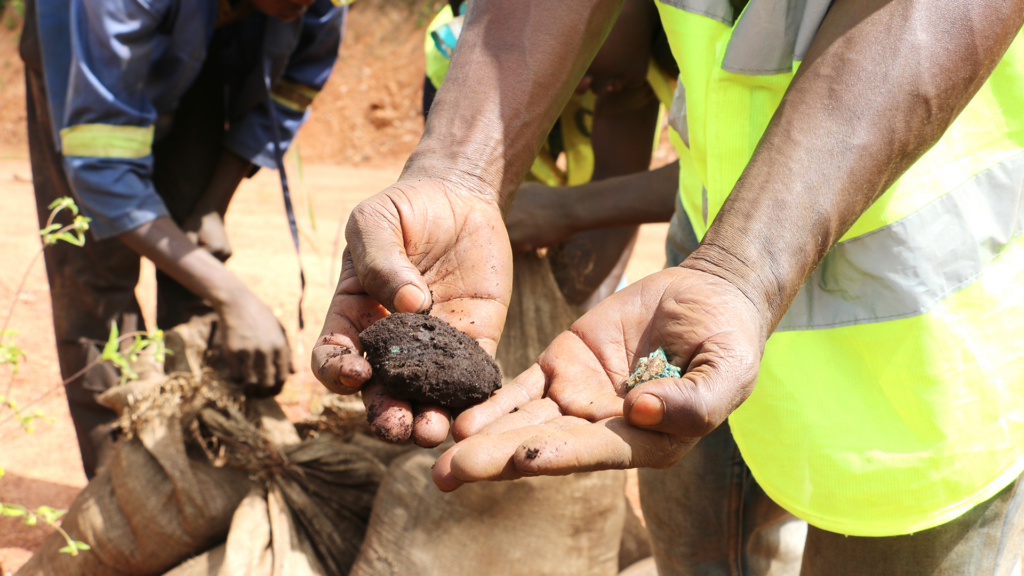
The mineral ores extracted from ASM sites leave the mines in burlap bags to be sold at local marketplaces, called depots.
We feel that being “conflict-free” is not enough – which is why we support and invest in programs that help improve the conditions for miners and their communities, tailored to what is needed in the specific area and the specific mineral. This includes support to make the mine sites safer, ensuring that miners can earn a decent income, preventing and mitigating child labor (not just banning it, but actually ensuring that children can go back to school and youth can learn a profession that is not as hazardous as mining), and diversifying livelihoods.
To give you a few examples of what we do on each of these materials:
- Cobalt: We co-founded the Fair Cobalt Alliance and work on improving conditions in artisanal cobalt mines in the south of DRC.
- Tungsten: We source 99% of our tungsten from a small-scale mine located in Rwanda. This mine is not just conflict free, but has established positive practices benefiting the workers and communities around the mine.
- Tin: 64% of the tin we use in Fairphone 5 is recycled tin. For the remainder, we track the smelters and refiners in our value chains and make sure they have been audited against standards, assessing they are conflict-free. In addition, Fairphone participates in a coalition piloting unconditional cash transfers to miners’ families in villages near tin mine sites in the DRC. The goal is to directly improve incomes and living conditions of miners and their families, and to learn how this could be scaled in more mining regions. This is the outcome of research we published in 2020, where we found that there was a gap between the incomes and the needs for a decent standard of living of miner families working in tin, tantalum or tungsten mines in DRC.
- Gold: We are integrating Fairtrade certified gold into our supply chain and were the first company to pilot Fairmined gold credits. By doing this, we pay a premium to miners who are extracting gold responsibly, so they can re-invest it into safer working conditions and community development.
- Tantalum: Similar to tin, we track the smelters and refiners in our value chains and make sure they have been audited against standards assessing they are conflict-free. Tantalum is not a focus material for us currently, but we are revisiting this as we develop our new Fair Materials Roadmap for 2030.
WHAT ABOUT COLTAN?
Coltan, short for columbite-tantalite, is a metallic ore out of which tantalum is made. Tantalum is a key component in the manufacturing of specific integrated circuits (such as high-frequency filters), which are crucial for the functionality of electronic gadgets, including smartphones.
SO COLTAN AND COBALT ARE DIFFERENT?
Yes, they are different minerals and also extracted in different regions of the DRC. Coltan is mined in the north-east of the DRC, some regions of which are, unfortunately, still marked by conflict and violence. Coltan in the DRC is extracted by artisanal- and small-scale miners mainly.
Cobalt, on the other hand, is found in the south of the DRC in the so-called copper belt, in the Lualaba and Haut-Katanga provinces. Cobalt is mined by large-scale industrial mines (LSM), but also by artisanal- and small-scale miners (ASM).
LSM? ASM? WHAT’S THE DIFFERENCE?
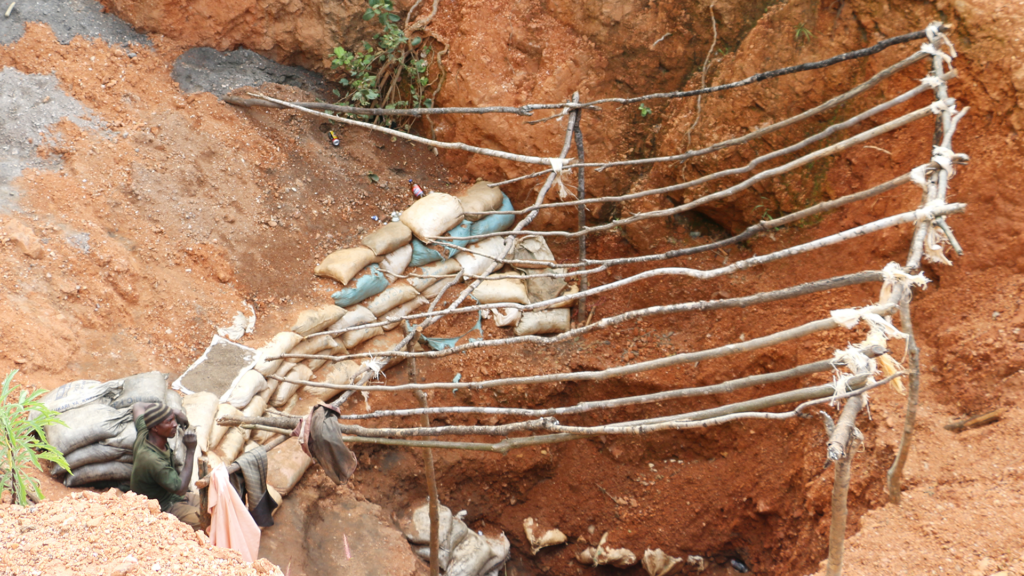
In the Katanga province where many of the cobalt mines are found, only about 15 to 20% of the production comes from artisanal and small-scale mines (ASM). But this still represents between 70,000 and 100,000 artisanal miners who often work without protective gear in unsafe conditions.
Large scale mining (LSM), or industrial mine sites, contribute to the vast majority of the world’s mineral production (not just cobalt) using mechanized operations. These operations use extraction and processing technologies that require high levels of investment and skills. But generally speaking, this type of extraction can have its own risks. For example, LSM operations may require lots of land, drive deforestation, and can pollute the water, land and the air around the operation.
On the other hand, artisanal and small-scale mining (ASM) usually uses basic forms of exploration, material extraction, processing and transportation. Simply put, instead of large scale machinery, miners in ASM operations use tools like pickaxes and shovels to dig minerals out of the ground. This type of extraction also comes with risks, as it is usually done without formal structures, and is often associated with dangerous working conditions, unfair incomes, and instances of child labor.
When it comes to cobalt specifically, in 2016, Amnesty International had published a detailed report on the hazardous conditions faced by cobalt ASM miners. Seven years later, many of these challenges still persist. The industry is well aware of these dangers and does not want to be linked to such harmful practices. As a result, many companies disassociate themselves from ASM-produced materials or even the DRC as a country, attempting to ban them from entering into their supply chains.
ISN’T THAT A GOOD THING?
No. Because without engagement, support, investment and advocacy, the dangerous conditions and issues associated with artisanal mining will persist. Demonizing the miners will harm rather than help. Banning or excluding the most vulnerable and marginalized in our industry from global supply chains will only push them even further away from reform. This will reduce oversight, allowing materials to find their way into global supply chains via back channels. This only makes conditions for workers and communities worse.
With the right support and incentivization, ASM mining operations can be done safely and ethically, without damaging the environment or the surrounding communities. The ASM sector provides a livelihood for hundreds of millions of miners and their families globally. Even in its current and often informal state, it is a major source of income for millions of people. This is significant, especially in countries like the DRC where jobs are hard to come by.
DOES FAIRPHONE WORK WITH LSM OR ASM OPERATORS?
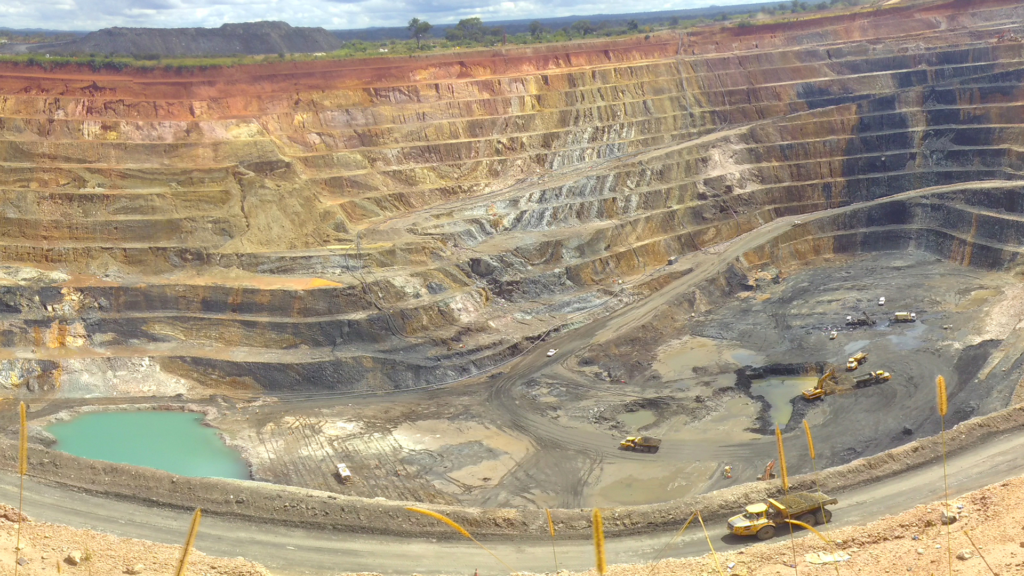
More than 50% of the global mined cobalt production comes from the DRC, from purely manually operated artisanal sites to more advanced industrial ones, such as the copper mine pictured here.
Both. For LSM operations, we increasingly work with mines who are willing to undergo strict assessments (such as against the IRMA standard), to make sure their practices are continuously improved, and they benefit – instead of harm – workers, local communities and local economies.
As for ASM, Fairphone has been working to support and improve ASM mines since its earliest days, purposefully linking ASM produced minerals to our supply chains and products. We will continue to do so in the future as well; supporting ASM will help improve their business practices, implement safe and better working conditions, and protect children.
CAN WE SAY FAIRPHONE’S DEVICES ARE 100% FAIR THEN?
Let’s be clear: There is no such thing as a 100% fair phone! At Fairphone, we’re still a long way from the goal of a phone that’s fair and earth-friendly through and through. With our focus on continuous improvement, our work on cobalt, tantalum, tungsten, tin, gold and other minerals from the DRC and elsewhere is just the start of the journey towards increasingly responsible practices and positive impact. If we expect change, then we ourselves need to change the way we use, buy and consume things.
To reach this goal, it means supporting the artisanal mining sector to become safe and responsible businesses – formalizing their work, making tunnels safer, ensuring that children do not enter mine sites and are able to go to school instead, properly training miners, helping them access safety equipment. This is a big job, one we need the entire industry to join us in.
One of our core values is to always communicate transparently, something we have been consistently doing through our blog and other channels since 2012, before we even formally became a social enterprise. For those of who you are interested in learning more, do go through our past blog posts as well and let us know if there is anything else that you would like specific information on.
